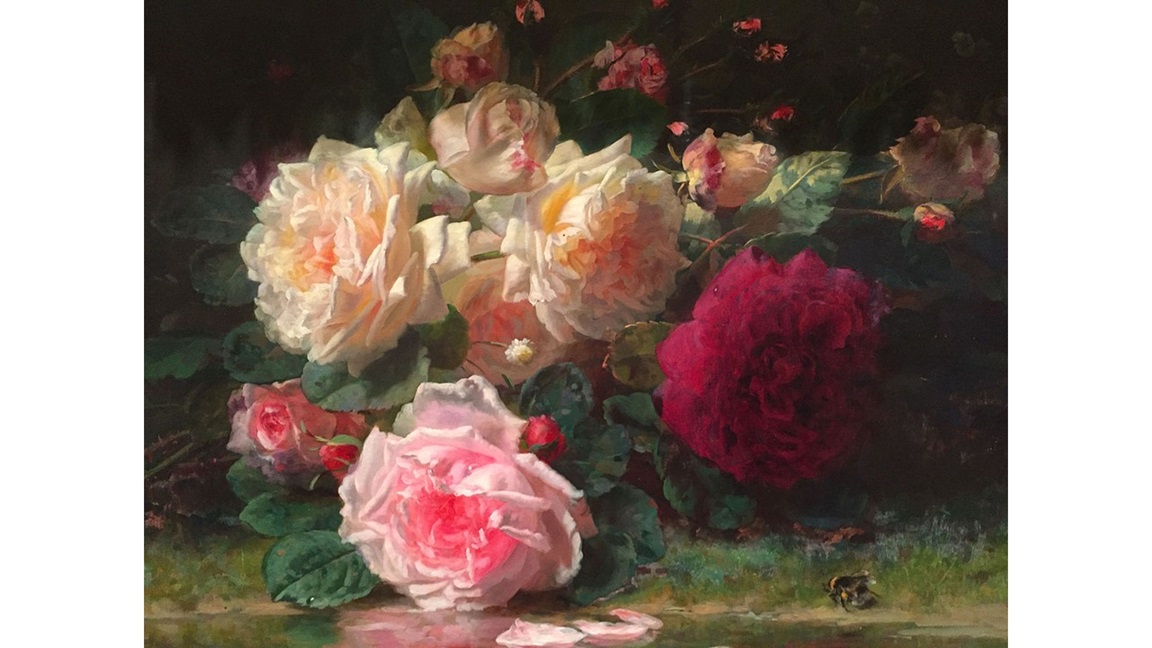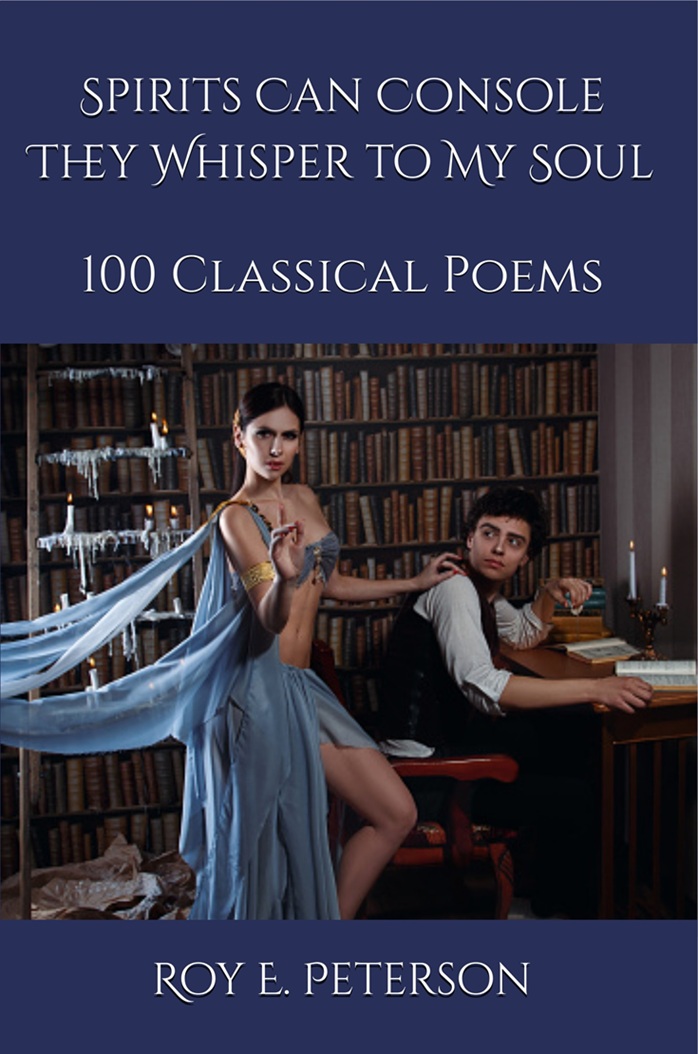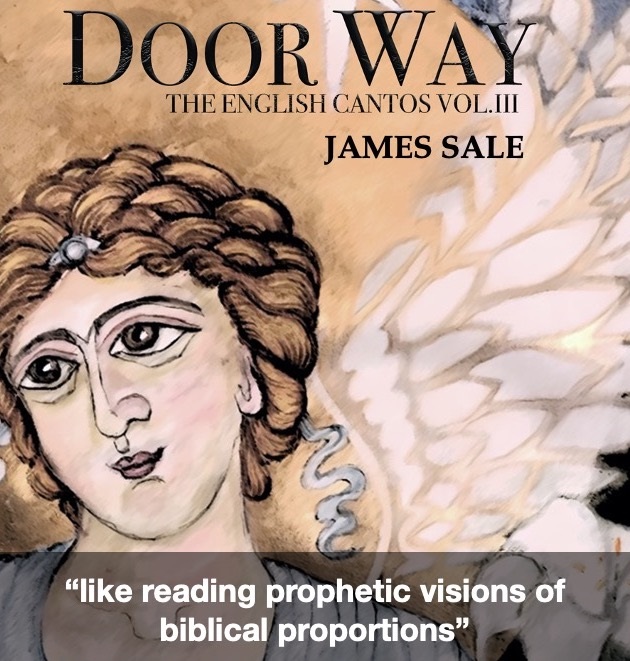.
It’s Coming for You!
It’s coming to devour you, you know.
There’s no escape no matter where you go.
It waits and watches, hides behind the door
With fetid breath from pathogenic spores.
Far worse than covid’s variants, it drains
The life force from the body and the brain.
It peers from soulless eyes that hypnotize,
Degenerating rods within the eyes.
It dances with Tutuba wantonly
As demons cachinnate most wickedly.
Their shrieks and howls are heard on Maple Street;
Its poison flows like lava in the heat.
It squawks of nevermore in evening light.
Dark shadows, ominous, will lend a fright.
Voracious in its appetite for blood,
It’s guaranteed to give your heart a thud.
More virulent than covid’s dastardly
Attempted spread across humanity.
More toxic than the masque of the red death,
Its claws are poised to steal your last breath.
It’s coming for you now, the monster’s here—
It has a name you know; the name is Fear.
.
.
Sandi Christie is a part time resident of Florida and Colorado. She teaches A Course in Miracles and has published two works of poetry related to that spiritual philosophy.

















Great poem! It reminds me of the Attitudinal Healing principle: “Health is inner peace; healing is letting go of fear.” It boggles my mind how in just a couple short years the world has seemingly forgotten FDR’s words: “The only thing we have to fear is fear itself,” even with RFK Jr. echoing them today: “Fear shuts down the capacity for critical thought.”
The rhythm you build with that pounding iambic pentameter is exciting, but it breaks down toward the end:
More toxic than the masque of the red death,
Its claws are poised to steal your last breath.
“of the red death” breaks the rhythm first, with its pyrrhic in the penultimate foot. And then “your last breath” seems to be missing a syllable. Would “your final breath” be better? Or is the metrical breakdown intentional?
The pyrrhic foot you notice, Jack, is simply a legit metrical substitution. There are two ideas behind this: one is to expand the number of possible ways to express an idea, and the other is to keep the rhythm from becoming too metronomic. And, yes, “final breath” would be better.
Thank you Jack! Healing IS letting go of fear. Fear being love’s opposite, closes off the flow of love that comes directly from our God Source. Love is the energy that heals every ill and salves every wound. Martin Luther King Jr.’s philosophy was based on that principle, changing the world through love instead of hate, as hate is just a derivative of fear. And fear does indeed shut down the capacity for critical and rational thought – being a favorite of the media, the government, and many religious organizations. It prevents people from striving, leads to depression, keeps us separate from our brothers, and the worst tragedy of all is that it keeps us separate from God. You cannot love what you fear- you can only worship it, sacrifice and suffer for it, but never truly join with it. Jesus completely overcame fear by joining with the Love of the Father and became the pattern for all to follow.
I agree with you that “the masque of the red death” starts to break down the meter, but it seemed to be a fitting allusion to the short story of the same name by one of my favorite authors- Edgar Allan Poe, and it seemed to be not altogether terrible. I am not an architect of precision poetry by any means, and content will always trump form for me. I do not worry about a line with 9 or 11 syllables, or one that lacks perfection. In my early years I was a perfectionist, and I found myself becoming increasingly unhappy and dissatisfied because nothing I created was perfect or good enough. When I gave up striving for such things, I became a much happier person. I need only please myself, as no matter how good I become, I will never please everyone. Like some pianists play music by ear, I too, write poetry by ear. I may never be as good as some of the great poets that frequent this site: The Susan Jarvis Bryants, the C.B. Andersons, the Brian Yapkos and James Tweedies that churn out perfectly polished precision poetry, but I am fortunate to occasionally share a forum with them.
I do wonder if the striving for perfectly designed precision poetry has turned people away from even attempting it and has sent them toward writing free verse instead, releasing them from the fear of ridicule by fellow poets. I have no doubt that some people that posted poems in this forum probably never attempted to do so again after some of the comments they received from their fellow well-intentioned peers. Thank you for taking the time to comment on mine, I do enjoy your songs.
Hmmm… It may be because I’m currently *in* my younger years, but I have to argue for a certain sort of perfectionism in the life of an artist. Not the kind that breeds universal dissatisfaction, but the kind that is always looking to grow, to hone skills more finely, and to create better art. Lifelong learning.
Poetry has been a great venue for me to practice such striving. My immediate response to criticism is often to raise my hackles – but I’ve discovered that such hackle-raising is usually in defense of my ego rather than my art. And the shield I use to defend my ego is… fear. If I can manage to put my priorities back in order (art first, ego ideally somewhere far down the list), I can then discern whether the criticism is really a threat to my art or actually a help, and take full advantage of the opportunity to examine my work in a new way.
I think a lot of poets drawn to free verse (especially those in my Millennial generation) are in it more for the ego than the art – and so they’ve created an “art” form that is impervious to criticism, complete with phrases like “my truth” and “I identify as.”
I should clarify that, with classical poetry, “better art” does not necessarily mean “more textbook-worthy metrics” but rather “poetry that more effectively does what I’m trying to do with it.” Metrics are one tool a poet has to shape the sound of language, and the sound of the language is one aspect of poetry that conveys the poet’s message to the reader/listener.
In my first reading of your poem, the driving sound of the regular rhythm delighted me in its delivery of the driving “Fear is coming for you!” message. And then I hit the aforementioned couplet, which pulled me out of the mood with its pyrrhic (which, as C.B. notes, the textbook allows, but which has a very different aural effect than an iamb) and its missing syllable. It felt like Fear had stumbled – which wasn’t quite a fitting sound for the text’s meaning. “Last breath,” now that I think of it, does have a meaning that fits well with the breath-catching rhythm.
I also wasn’t familiar with Poe’s short story, so the sound of “masque of the red death” had a much greater impact on me than the meaning. There isn’t really any getting around the differences in our readers’ backgrounds. As you say, you can’t please everyone.
Thank you for engaging in this conversation. It is one of my favorite things about SCP that the community welcomes these tidbits of constructive criticism. Reading them, and writing them, is helping me hone my own poetry practice.
An apt and well written poem for these turbulent times, Sandi.
Your Masque of the Red Death reference reminded me of the film with Vincent Price of that title, which I saw as a boy and did indeed instill fear.
Thanks for the read.
Thanks Paul, I had forgotten about that movie! Vincent Price did indeed star in several Edgar Allan Poe stories. You’ve brought back some fun childhood memories! Thank you for commenting!
Thanks for your informative poem so apt for these times…Allegra
Allegra, we are living in some very fearful, turbulent times, that is for sure. Thank you for reading and commenting.
A great poem for the weekend.
Fear has killed so many more than those killed by Covid itself. I pray sanity returns to earth.
Best wishes.
Satyananda, thank you for the best wishes – I wish you the same. A prayer for the return of sanity implies that sanity was once here, but I am not so sure it ever was here in this separated world. However, we can pray our minds are restored to sanity and that the reflection of that is seen in the world. We can only hope. Thanks for reading and commenting.
Great statement in this poem. The fear of Covid is out of all proportion to the threat. Thank heaven that some experts are now suggesting we just have to live with this thing, without all the lockdowns and the other overreactions. Well done Sandi.
David, I agree with you, the world is saturated in an inordinate miasma of fear. I tried to reference this with allusions to “The Crucible”, to the Twilight Zone classic – “The Monsters are due on Maple Street”, to Poe’s “The Raven”, and again to Poe’s “The Masque of the Red Death” as fitting depictions of the insanity we are seeing now. Thank you for reading and for your kind comment, it is appreciated.
You’re welcome.
Sandi, from the enticement of the title to the potent message in the closing couplet, this poem rocks! I especially like the onomatopoeic “As demons cachinnate most wickedly.” I can hear the cacophony of the cruelest of cackles and I love it! Like you, my message always comes before the technicalities of a poem – I think you have a beautiful balance here. Very well done, indeed, and thank you! For your information, I was a little daunted by the site – the caliber of poetry and the knowledge surrounding it seemed far beyond mine. I read, I listened, I learned, and upped my game. I think only good things come from striving for the best… Sandi, keep writing, smiling, and publishing on this site!
Susan thank you for your kind words! If I had found this site when I started writing poetry, I may have succumbed to fear myself and never even tried. Luckily, I started writing in a vacuum as a spiritual practice. When I started writing I did not even know what iambic pentameter was, other than that it was present in Shakespeare’s works. I could not hear the meter. It was only after discovering that some of my 10 syllable poems had this groovy meter and others did not that I attempted to learn more about different styles of poems and meter. I have learned a lot since then and even more since I started coming to this site from the informative articles as well as from reading the great poems here from people such as yourself. You inspire us all to try a little harder, and I appreciate you sharing your works here. How fortunate we all are to have you here! Thanks for taking the time to comment. Happy New Year!
Sandi, in title and content you have hooked readers on suspense that is only resolved in the closing couplet. That’s an excellent formula to follow, and makes your point more decisive.
David, thank you for your insights on my poem and for taking the time to comment on it. It is very much appreciated!
Sandi, Thank you. Poetry by ear is so good to hear. It is close to the heart
and music.
Kate, we have a musical family. My husband is a jazz pianist, but it was his parodies of songs (much like our friend Jack’s – without the politics) that got me interested in writing rhymes. We have all the greatest hits from – “The Cat from Ipanema” to “Bark like a Beagle” and beyond. We like laughter and nonsense. Thanks for reading and commenting.